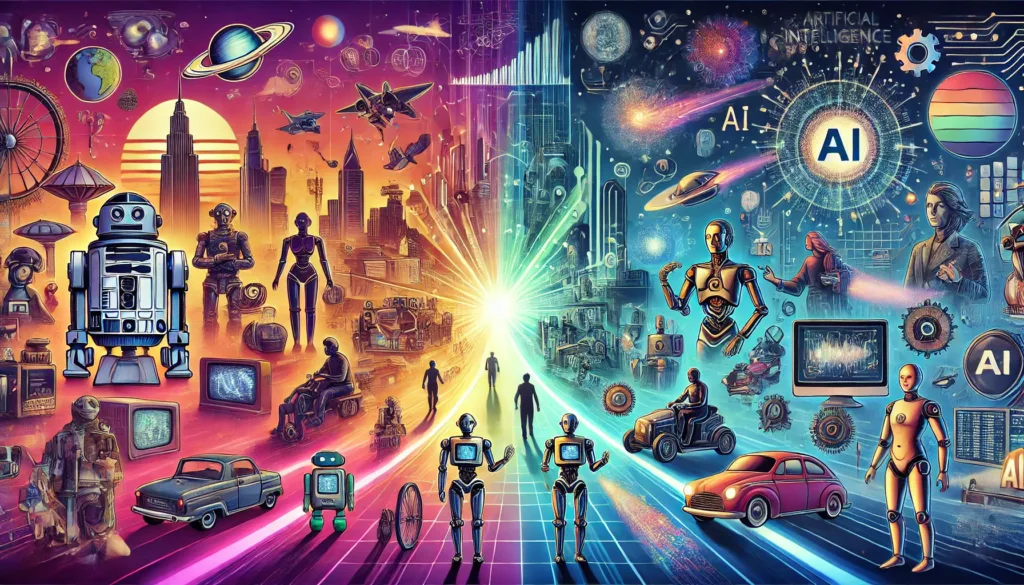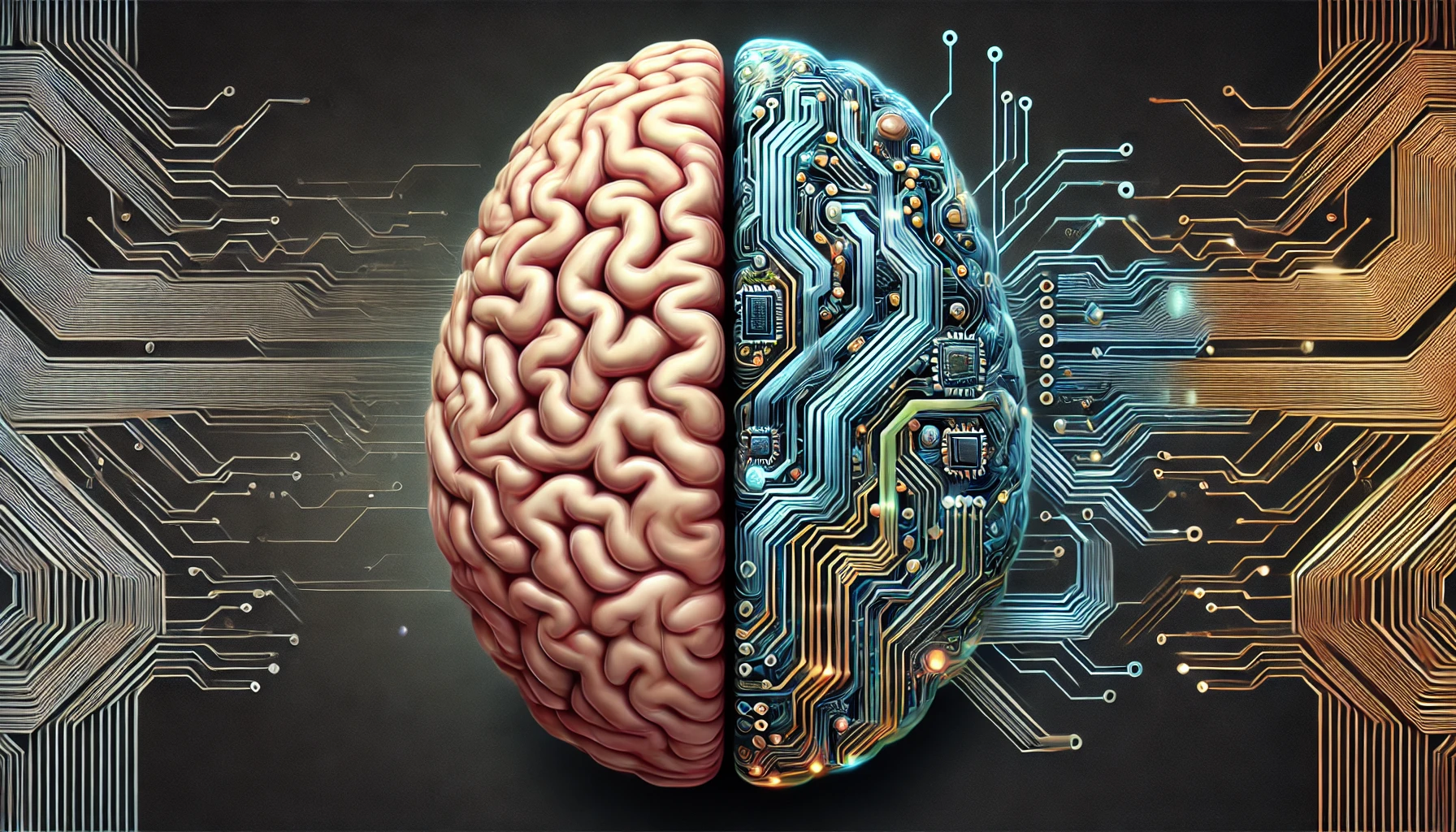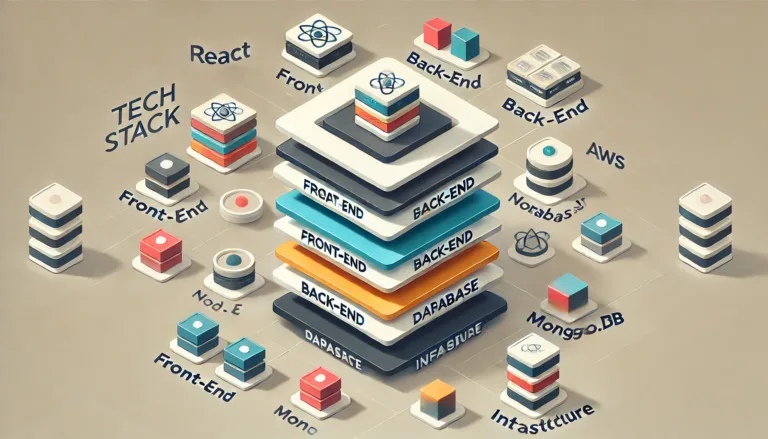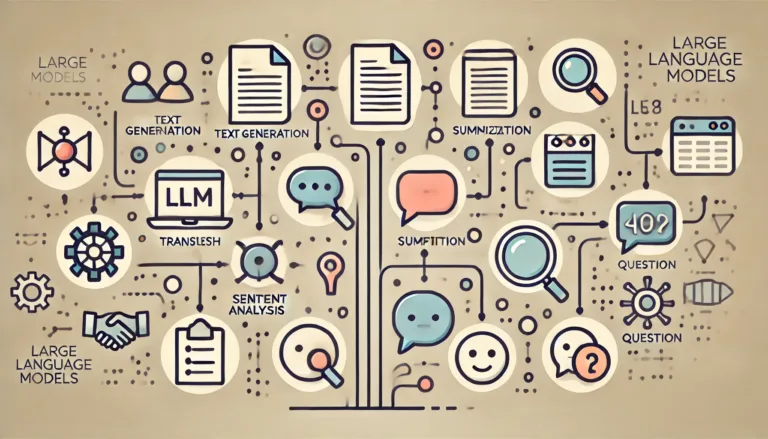Introduction
Artificial Intelligence (AI) has rapidly become a cornerstone of technological innovation, reshaping industries and impacting nearly every facet of modern life. From automating mundane tasks to transforming complex decision-making processes, AI is redefining what machines can do. Initially a concept confined to science fiction, AI has evolved into a practical tool with the potential to revolutionize healthcare, finance, transportation, and beyond. As its applications expand, understanding the fundamental purpose of AI becomes crucial.
The main purpose of AI is to replicate human intelligence in order to enhance efficiency, optimize decision-making, and drive transformative change across diverse sectors. By simulating cognitive functions such as learning, reasoning, and problem-solving, AI systems empower machines to perform tasks that traditionally require human intervention. This shift not only boosts productivity but also allows humans to focus on more strategic, creative, and value-driven endeavors.

Understanding AI’s Core Purpose
1. Replicating Human Intelligence
The foundational goal of AI is to replicate human cognitive functions, enabling machines to mimic the ways in which people think, learn, and make decisions. This involves developing algorithms that can analyze data, recognize patterns, draw conclusions, and even adapt to new scenarios without human input. One of the key features of AI is its capacity to learn autonomously from experience, allowing it to evolve and refine its responses over time.
Examples of this capability include:
- Pattern Recognition: AI systems can identify complex patterns in large datasets, making them ideal for image and speech recognition.
- Problem-Solving: Advanced AI algorithms can navigate challenges such as scheduling, route planning, and optimizing logistics.
- Autonomous Decision-Making: AI can operate independently, managing processes like automated trading in finance or controlling robotic systems in manufacturing.
2. Improving Decision-Making Processes
Another core purpose of AI is to support and enhance decision-making. By processing massive amounts of data faster than any human could, AI systems are capable of uncovering insights and trends that might otherwise go unnoticed. These insights can lead to more informed decisions, increased accuracy, and better strategic outcomes.
Industry use cases include:
- Healthcare Diagnostics: AI analyzes medical records and images to assist doctors in making more accurate diagnoses and recommending personalized treatment plans.
- Financial Predictions: AI models forecast market trends, enabling investors to make data-driven decisions and minimize risks.
- Supply Chain Optimization: AI optimizes logistics by predicting demand, managing inventories, and streamlining operations to reduce costs.
3. Automating Repetitive Tasks
AI is designed to take over repetitive, time-consuming tasks, freeing up human resources for higher-level cognitive work. Automation reduces human error and increases efficiency, making it a valuable tool in industries that rely on precision and consistency.
Examples of automated tasks include:
- Manufacturing: AI-driven robots perform repetitive assembly line tasks with high precision and speed.
- Administrative Processes: AI software automates data entry, scheduling, and report generation.
- Customer Service Automation: Chatbots and virtual assistants handle routine inquiries, allowing human agents to focus on more complex customer interactions.
4. Personalization and Enhanced User Experience
One of AI’s most impactful purposes is to deliver personalized experiences by analyzing user behavior and preferences. By tailoring content, products, and services to individual users, AI enhances engagement and satisfaction, driving better results for businesses and customers alike.
Examples include:
- Recommendation Systems: AI algorithms suggest products on e-commerce platforms based on browsing history and purchase patterns, making shopping more intuitive and personalized.
- Personalized Marketing Strategies: AI analyzes consumer data to craft targeted campaigns that resonate with specific audiences, increasing the effectiveness of marketing efforts.
Key Applications of AI in Different Sectors
1. Healthcare
Application: AI is transforming healthcare by enhancing diagnostics, treatment planning, and patient monitoring. AI algorithms analyze complex medical data, such as imaging scans and patient records, to identify patterns and make predictions that support clinical decisions.
Benefits:
- Improved Accuracy: AI can detect minute anomalies in medical images, increasing diagnostic precision.
- Early Detection: By identifying early signs of diseases such as cancer or neurological conditions, AI enables timely interventions.
- Efficient Patient Care: Automated patient monitoring systems alert healthcare providers to critical changes, ensuring proactive management and personalized treatment plans.
2. Transportation
Application: AI plays a pivotal role in the development of self-driving cars, traffic management systems, and intelligent route optimization. By leveraging computer vision, machine learning, and sensor fusion, AI enables autonomous vehicles to navigate complex environments safely.
Impact:
- Reduced Human Error: Autonomous driving technology minimizes human-related errors, which are a leading cause of traffic accidents.
- Improved Safety: AI systems analyze real-time traffic data to make split-second decisions, enhancing road safety.
- Efficiency: Smart traffic management systems optimize traffic flow and reduce congestion, leading to faster commutes and reduced fuel consumption.
3. Natural Language Processing (NLP)
Application: NLP enables machines to understand, interpret, and generate human language. This capability is the backbone of virtual assistants like Siri and Alexa, as well as language translation services such as Google Translate.
Benefits:
- Intuitive Human-Machine Interactions: Virtual assistants provide natural language responses, making interactions more user-friendly and accessible.
- Accessibility Improvements: NLP-based systems can transcribe speech, translate text, and support multilingual communication, breaking down language barriers for users around the world.
4. Financial Services
Application: In the financial sector, AI is used for fraud detection, risk management, and algorithmic trading. By analyzing transaction patterns and market data, AI models can detect irregular activities, predict financial risks, and execute trades at lightning speed.
Impact:
- Enhanced Security: AI-powered fraud detection systems monitor and flag unusual transactions, reducing instances of financial crime.
- Reduced Financial Risks: Risk management models assess the probability of defaults and investment losses, helping institutions mitigate potential dangers.
- Improved Investment Strategies: Algorithmic trading systems use real-time data to optimize trading decisions, leading to better portfolio performance and faster execution.
5. Manufacturing
Application: AI has revolutionized manufacturing through the use of robotics in assembly lines, predictive maintenance, and quality control. By integrating AI into production processes, manufacturers can achieve higher levels of efficiency and precision.
Benefits:
- Precision: AI-driven robots perform complex assembly tasks with micron-level accuracy, reducing production defects.
- Speed: Automation accelerates production cycles, enabling companies to meet demand faster.
- Consistency: AI ensures uniformity in quality control, maintaining high standards throughout the manufacturing process.
The Broader Implications of AI
Ethical Considerations: Addressing Potential Risks and Challenges
As AI continues to integrate into various sectors, it brings with it a range of ethical challenges that require careful consideration. One of the primary concerns revolves around bias in AI algorithms. Since AI systems learn from historical data, any existing biases in that data can be reinforced and perpetuated, leading to unfair or discriminatory outcomes, particularly in sensitive areas like hiring, law enforcement, and lending decisions. Addressing these biases requires rigorous testing, transparent methodologies, and a commitment to ethical standards.
Privacy is another critical issue. AI systems often require access to large datasets, which can include sensitive personal information. Without proper safeguards, this can lead to privacy breaches and unauthorized data usage. Developing robust frameworks for data security and implementing clear policies for consent and usage are essential to maintaining public trust.
The autonomy of AI systems also raises ethical questions. As AI becomes more capable, there is a need to define clear boundaries for autonomous decision-making in contexts such as military applications, healthcare, and self-driving cars. Establishing guidelines for accountability and control is crucial to prevent unintended consequences and ensure human oversight in critical situations.
Societal Impact: Job Displacement vs. Creation, Digital Transformation, and New Opportunities
The rise of AI has sparked widespread debate over its impact on the workforce. One of the most immediate concerns is job displacement, as AI and automation take over tasks traditionally performed by humans. Sectors such as manufacturing, customer service, and logistics are particularly vulnerable, with repetitive and predictable tasks being the first to be automated. This could lead to significant job losses, especially for low-skilled workers, potentially widening the socioeconomic divide.
However, while AI may displace certain jobs, it also has the potential to create new roles and industries. As companies adopt AI, there will be a growing demand for skills related to AI development, implementation, and maintenance, such as data science, machine learning engineering, and AI ethics consulting. Furthermore, AI can enable workers to focus on higher-value tasks that require creativity, strategic thinking, and emotional intelligence, which could lead to more fulfilling career opportunities in the long term.
Beyond the workforce, AI is driving a digital transformation across industries, creating opportunities for new business models and innovations. Companies that harness AI effectively can develop smarter products, offer personalized services, and achieve operational efficiencies that were previously unimaginable. This transformation has the potential to elevate the global economy and unlock new avenues for growth and productivity.
In essence, AI’s societal impact is a double-edged sword: it presents challenges that need to be addressed, but it also offers the promise of innovation, efficiency, and new opportunities. Managing this impact responsibly will require collaboration between governments, businesses, and educational institutions to ensure that the benefits of AI are widely shared and its risks are mitigated.
Conclusion
Artificial Intelligence’s primary purpose is to replicate human cognitive abilities to enhance efficiency, improve decision-making, and automate complex processes across a variety of sectors. Its transformative role can be seen in how it revolutionizes healthcare through predictive diagnostics, drives innovation in autonomous transportation, powers personalized user experiences, and optimizes manufacturing workflows. AI’s capacity to analyze large volumes of data and operate autonomously has the potential to elevate human capabilities, allowing us to focus on more strategic, creative, and emotionally nuanced tasks.
As AI continues to evolve, its future potential appears limitless. Advances in machine learning, robotics, and natural language processing will likely lead to smarter, more adaptable systems that can tackle even more complex challenges. The key lies in developing AI responsibly, ensuring it complements human efforts and addresses ethical and societal concerns. With the right frameworks in place, AI has the power to shape a future that benefits individuals, businesses, and society as a whole.
Suggested Readings & Resources
For those looking to dive deeper into the purpose and applications of AI, here’s a list of recommended resources and articles:
- Zabeel Institute – Understanding AI’s Purpose
Link to article
A comprehensive overview of AI’s objectives and potential impact across sectors. - Simplilearn’s Tutorial on Goals of AI
Link to article
Explores the key goals of AI, including learning, reasoning, and problem-solving. - LinkedIn Articles on AI’s Role in Business
- Article 1
- Article 2
Detailed discussions on AI’s application in various industries and its transformative potential.
- NetApp Guide to Artificial Intelligence
Link to article
A beginner-friendly guide covering AI’s definition, purpose, and key use cases. - European Parliament Report on AI
Link to article
Analysis of AI’s impact on society and its role in shaping policy and regulation.
FAQ Section
- What is the primary purpose of AI?
The main purpose of AI is to replicate human intelligence to enhance efficiency, optimize decision-making, and automate complex processes across various industries. This allows machines to perform tasks that traditionally require human involvement, leading to increased productivity and improved outcomes. - How does AI improve decision-making?
AI systems analyze large datasets, identify trends, and generate insights that humans might overlook. This ability helps industries like healthcare, finance, and logistics make more informed decisions, reducing risks and enhancing strategic planning. - What are the ethical concerns surrounding AI?
Some major ethical concerns include bias in AI algorithms, privacy issues, and the autonomy of AI systems. Addressing these concerns requires transparency, clear regulations, and responsible development practices to ensure AI is used for the benefit of society. - Will AI cause widespread job displacement?
While AI may displace certain repetitive jobs, it is also expected to create new roles in areas like AI development, data science, and technology management. The key is for the workforce to adapt through continuous learning and skill development. - What is the future potential of AI?
AI’s future potential lies in its ability to tackle more complex challenges, such as personalized medicine, climate modeling, and advanced robotics. As AI technologies continue to mature, they will likely lead to more integrated and adaptable systems that complement human capabilities in unprecedented ways.









